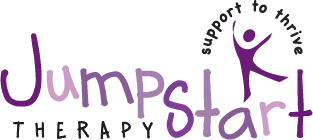

Interoception Skills - “Why Doesn’t My Child Know When They’re Angry/Sad/Stressed?”
Interoception Skills - “Why Doesn’t My Child Know When They’re Angry/Sad/Stressed?”
Why Autistic and Neurodivergent Children Have Greater Difficulty with Interoception
Interoception, often referred to as the "eighth sense," is the ability to perceive and interpret internal bodily signals such as hunger, thirst, pain, or the need to use the bathroom. For many autistic and neurodivergent children, interoception can be a significant challenge, impacting their ability to recognise and respond to their body’s needs. Understanding this can help you to better support your children.
The Role of Interoception in Daily Life
Interoception plays a critical role in self-regulation, emotional awareness, and overall well-being. It helps children identify when they are hungry, tired, or in pain, and it also contributes to emotional regulation by linking physical sensations to emotions. For example, a racing heart might signal anxiety, while a growling stomach indicates hunger. When interoception is impaired, children may struggle to connect these physical sensations to appropriate actions or emotions, leading to confusion, frustration, or even meltdowns.
Why Neurodivergent Children Struggle with Interoception
Autistic and neurodivergent children often experience differences in sensory processing, which can extend to interoception. Their brains may process internal signals differently, making it harder to recognise or interpret these cues. For example, a child might not recognise the sensation of needing to use the bathroom until it becomes urgent, or might confuse feeling cold with sad. This can lead to challenges in daily routines, emotional regulation, and even physical health.
Additionally, the heightened or diminished sensory sensitivities common in neurodivergent young people can further complicate interoception. A child with heightened sensory sensitivity might feel overwhelmed by internal signals, while a child with diminished sensitivity might not notice these signals at all. These differences are not deficits but rather variations in how their brains process information.
Myths and Facts About Interoception in Neurodivergent Children
Myth 1: All children naturally develop interoceptive awareness.
Fact: While many children develop interoceptive awareness as they grow, neurodivergent children often require explicit teaching and support to recognise and interpret their internal signals. This is not a failure on their part but a reflection of their unique sensory processing.
Myth 2: Interoception only affects physical needs like hunger or thirst.
Fact: Interoception also plays a crucial role in emotional regulation. For example, recognising a tight chest as a sign of anxiety or a warm sensation as happiness is part of interoceptive awareness. Neurodivergent children may struggle to make these connections, which can impact their ability to regulate their feelings.
Myth 3: Interoceptive challenges are the same for all neurodivergent children.
Fact: Interoceptive difficulties vary widely among neurodivergent children. Some may be hypersensitive to internal signals, while others may be hyposensitive. Understanding each child’s unique needs is essential for providing effective support.
Supporting Neurodivergent Children with Interoception
Parents and caregivers can help neurodivergent children develop interoceptive awareness through targeted strategies. Such as:
· Using visual aids to remind children to check in with their bodies,
· Practicing mindfulness to increase awareness of physical sensations - Encouraging your child to do a body scan to help them to pay attention to changes in bodily sensations
· Making statements about how your child might be feeling and linking this to their body signs will help them to recognise their own unique body signs.
Accepting that your neurodivergent child may need to communicate their feelings differently is important. They might need to use descriptors such as “I feel purple with spikes or I’m covered in green slime” to express that they’re sad or anxious. Some children also prefer to use numbers or size to describe their feelings.
By understanding the unique challenges our neurodivergent children face with interoception and dispelling common myths, we can create a more supportive and inclusive environment. Your children are not “deficient”, they simply experience the world differently. With patience, empathy, and the right tools, we can help them thrive.

JumpStart's Lending Library
We've launched our very own library offering books & resources forParents/Carers and children connected with us. Books that promote children's strengths and abilities and celebrate diversity.
If there is a book you would like to borrow please email us. We will let you know when it is ready for pick up from Ochre Medical Centre Bathurst.
If you have recommendations for upcoming books to review, we'd love to hear from you!




